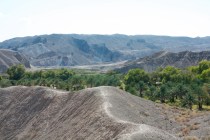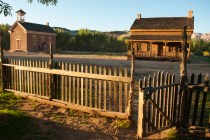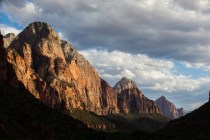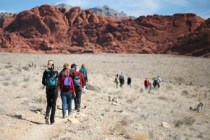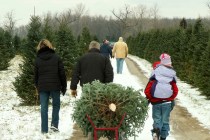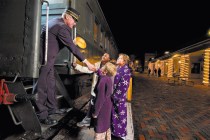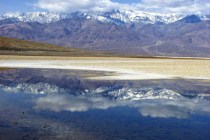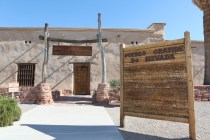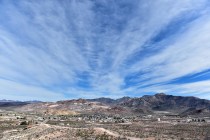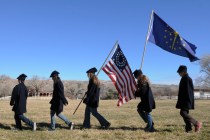Native cultures clearly left mark on Nevada
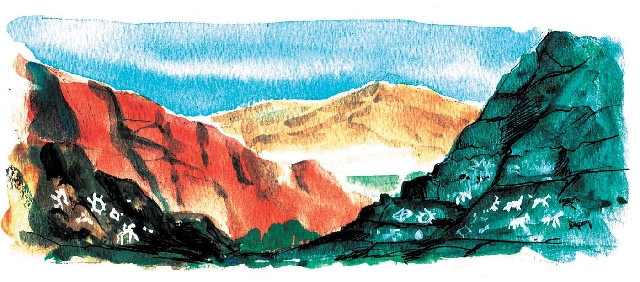
Nevada’s public lands hold a wealth of rock art left behind by native cultures that developed long before Europeans arrived in the New World. Exploring Nevada’s rock art sites offers glimpses of the past and intriguing clues about ancient history.
Rock art in Nevada consists mostly of petroglyphs, symbols etched into stone, and some panels of pictographs, symbols painted on protected stone surfaces with natural pigments.
A third kind of rock art called intaglios or geoglyphs, motifs etched into the earth, is not known to exist in Nevada. The closest examples are the Blythe Intaglios, huge figures scraped into desert flatlands west of the Colorado River near Blythe, Calif.
In Nevada, some of the best-known sites for exploring these archaeological treasures are close to major highways, easily accessible in the family car. Some remote sites may be reached via side roads, rough tracks or even foot trails. Often, such routes require the use of a high-clearance or four-wheel-drive vehicle. Don’t attempt to reach remote destinations without a good spare tire, plenty of water, detailed maps and a reliable GPS.
When visiting a rock art site, remember these cultural remnants are an irreplaceable piece of our national heritage. The sites have particular significance for Native Americans. These relics have survived hundreds or even thousands of years yet can be easily damaged. Take photos, but refrain from touching the rock art, as the oils from your skin can damage it. Never climb on, mark or remove rock art. Damage or theft of these relics falls under protective state and federal laws with fines and possible jail time for offenders.
Rock art in Nevada is most often found near water sources, game trails and overland travel routes. It provides clues about the ancient artists and their way of life. These people were keen observers who developed an intimate understanding of their environment. Some sites may have had religious significance. Others align with celestial events such as the equinoxes, indicating these early inhabitants closely observed the night sky.
Several of Nevada’s best-known rock art sites are within easy driving distance of Las Vegas. Valley of Fire, Nevada’s oldest and largest state park, protects several significant rock art sites, such as Atlatl Rock and Mouse’s Tank. Visitors to nearby Red Rock Canyon National Conservation Area may spot rock art while hiking along the trails. Still mostly undeveloped, Sloan Canyon National Conservation Area south of Las Vegas was set aside primarily to prevent urban land development from destroying several panels of pictographs that are located there.
Other spots in Clark County with notable concentrations of petroglyphs include Keyhole Canyon off U.S. Highway 95 south of Railroad Pass, Grapevine Canyon and Hiko Springs near Laughlin and Whitney Pockets south of Mesquite in the Gold Butte area.
Neighboring Lincoln County boasts many rock art sites outlined in a brochure available on the website lincolncountynevada.com. Rock art sites are located off U.S. Highway 93 near Alamo, along Route 318 through White River Canyon and in the Rainbow Canyon Narrows south of Caliente.
Sites scattered across the state include the Hickison Petroglyph Site east of Austin off U.S. Highway 50 near a popular forest campground and the Lagomarsino Trail through a petroglyph site near Virginia City. The Bureau of Land Management’s Grimes Point Archaeological Site near Fallon contains hundreds of glyph panels on boulders along the Grimes Point Trail. Explore the site on a guided hike to Hidden Cave on the second and fourth Saturday of each month. Meet at 9:30 a.m. at Fallon’s Churchill County Museum.
Margo Bartlett Pesek’s Trip of the Week column appears on Sundays.



